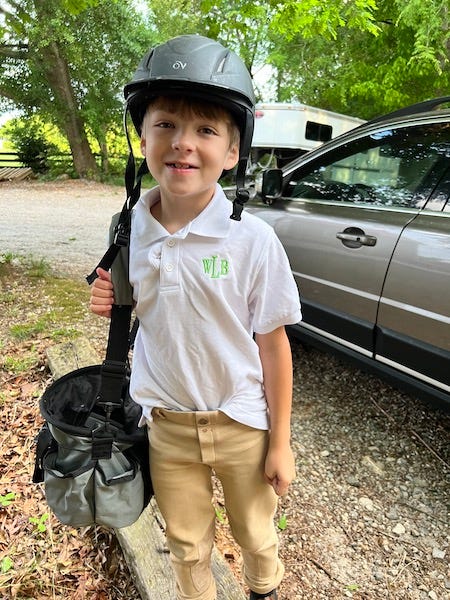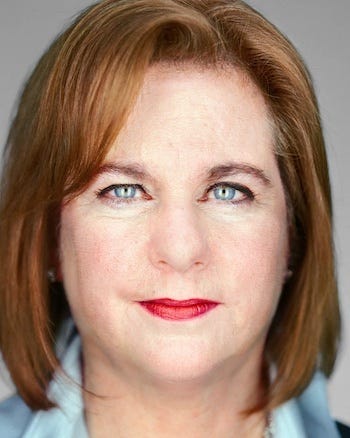Volume 4, Issue 16: Ken Boyer
"Taken from us too early, he sure made the most of the time he had."
Here is a button where you can subscribe to this newsletter now, if you have not previously done so. I do hope that you enjoy it.
One positive habit I got back into during the early days of the pandemic was giving blood. From the time I was in college until I moved to New York City (where everything, including giving blood, is about 55 percent more difficult than it is anywhere else), I gave blood every three months. My mother, an ER nurse, had instilled in me the importance of donating whenever I could; it’s a way, even when the world feels unkind and ungenerous and it can all seem hopeless and despairing, to know that you are personally doing something to tangibly help people. I have found myself needing that sensation more in the last couple of years, and even the last couple of weeks. It helps me too. Plus they give you a cookie at the end.
My return to the world of blood donation was not entirely altruistic. In that first, vaccine-less year of the pandemic, the American Red Cross advertised that they would test your blood for antibodies, to see if you had ever contracted asymptomatic Covid and not known it. This felt, at the time, a time in which fear of Covid was at its peak, a little like a free lottery ticket: Maybe I’ve already had it! Maybe I’m free! You can still do this, by the way; my most recent blood test confirmed that I remain one of the more than half of Americans who have never had Covid. As someone who was worried about both my young children and my older parents, having the opportunity to check in regularly, both through antibody tests and regular swabs from the Georgia Department of Health, was a way to have some peace of mind. It was a way to make sure I wasn’t gonna hurt anybody.
But during one visit to the blood bank in Athens that year, they turned me away. Before they take your blood, they ask you a series of questions, check your history of donating and, most important, take your blood pressure. Your blood pressure must be below 180 systolic (the top number) and 100 diastolic (bottom number) for you to be allowed to donate. These are not unreasonable numbers: 140 over 90 is considered “high blood pressure,” so 180 over 100 actually gives you considerable leeway. You can have high blood pressure and still give blood. But in August 2020, when they took my blood pressure, I was at 170 over 110! 170 over 110! When the nurse took my blood pressure, he actually whistled. “Yeah, you’re not giving blood today,” he told me. “Honestly, you need to see a doctor.”
What was strange about this is that I do not, in fact, have high blood pressure: I regularly clock in at a steady 120 over 80, no problem. (Cholesterol? Now that’s much more of a problem, partly because of genetics and partly because vegetables taste terrible.) That night, my mother took my blood pressure, and it was 160 over 105—still super high. I was scheduled for a physical four months later, so when that day came, I made sure to ask my doctor, who is my age and has children around my children’s age, if I needed high blood pressure medicine.
“Oh, you don’t have high blood pressure,” he said. “We just tested you. 118 over 82. You’re fine. Why do you think you have high blood pressure?”
I told him about my blood donation experience, and he shrugged. “Maybe they have sensitive machines?” Two months later, I tried to give blood again, and was bonked once more: 165 over 105. I called my doctor afterwards and set up another appointment a month later. When I came in for that one, my blood pressure was back to normal. Neither one of us could figure out what was going on.
We got to talking about the pandemic, as one does in a doctor’s office in February 2021, and something occurred to him.
“Wait, so I think there might be a pattern to your BP numbers,” he said, glancing at my chart. “Every time your numbers were high, it was when your children’s school was closed. When virtual school ended, and they went back to school, your numbers went back down.”
He was right. My blood pressure shot up during virtual school. How could it not? Everyone suffered in one way or another during the pandemic. The aspect that haunted our family the most was the nightmare that was virtual schooling. My older son’s grades started dropping; my younger son physically ran away from home; they both became more sullen, grouchy and unhappy. They were learning next to nothing; their teachers were actively miserable; first graders were learning how to socialize by staring at a Zoom screen. And we were the lucky ones, the ones able to provide reliable wireless access and a safe environment for them. There were kids out there sitting in the parking lots of Taco Bells, for crissakes. Virtual school was a disaster that we’ll be digging out from under for decades. This was obvious while it was happening, to anyone even remotely paying attention.
And, apparently, it almost killed me.
****************
My children only have a week-and-a-half left of school this year. They wrap up early in the South, but we make up for it on the front end; the first day of their next school year is the absurdly early date of August 3. My older son William is finishing up the fourth grade; Wynn, his younger brother, the second. This is the third consecutive school year disrupted by the pandemic. The first year, Wynn’s kindergarten experience, ended two months early. The second year was almost entirely virtual. This third year was in-person from the start, but with a mask requirement until very recently and with the occasional interruptions for positive tests and contact tracing. Parents only in the last month were allowed to enter the school at all. For my kids, going to school during a pandemic is all they know about going to school at all.
But they are, at last, back. And as this school year wraps up, it is all starting to feel a little bit more like that normal we’ve been seeking.
My older son William is obsessed with baseball, and sports; he wakes up in the morning to watch sports highlights, he reads about sports every second he’s allowed to be on a computer, he plays kickball at every recess and then heads out to baseball practice afterward. His team has its playoffs this coming week, and he is focused in a way I’ve rarely seen him, which is all to say, he’s pretty much the exact way I was when I was that age.
My younger son Wynn is more of a Renaissance Boy. He plays baseball too, and he’s good at it: He actually hit a home run in a game of his own this week, and if I showed you William’s two weeks ago, I sure have to show you Wynn’s too.
But Wynn is a whirlwind of activities. He draws comics—he insists I call them “graphic novels”—every night before he goes to bed, detailed stories about a bug named Buggy and all his misadventures. He gotten into horseback riding, and even had a show last weekend where he somehow got that wild animal to jump over things simply by moving his arms in the right direction.
He also does taekwondo and can break a board with his feet now.
And he is, gloriously, back in school, the sort of kid who can talk his teacher into letting him wear a costume to class and can get his fellow second graders to play along. I don’t know what school is for more than for stuff like this.
He, and William, and the rest of them, they are … living. I know that the pandemic is not over, and we’ll be living with it throughout the fall and however long after that— but this, you know, this is what we were talking about when we talked about getting back to “normal.” There have been two years of fear and division and anxiety and grief, a sense that our lives had been changed forever, that so many of our hopes and dreams, for ourselves and our children, had been permanently displaced. But as this school year ends, I see my children thriving because, for the first time for two years, an extremely large percentage of their lives, they get to be kids again. They get to do what kids are supposed to do.
Two years ago my son was fidgety and moody and trying to run away from home. Now he’s riding horses and hitting homers and breaking boards and trying to get away from those freaking Ghostbusters. There are surely more perils ahead of us. There are many perils right now. But I will not be a captive of the forever scroll of doom. I’ve seen what my kids were like two years ago. I’ve seen what I was like two years ago. This is better. This is life. This is what we were all trying to get through that, trying to get to.
I’m grateful. No matter how down I might get about things, no matter how distressing the world can feel sometimes, no matter how much things might just hurt … this is better. This normal is better. There were moments when I worried we’d never make it back to kids running through school hallways, to spending the nights with their friends, to going out into the world, seeing what it has to offer, making their mark on it, a mark that’s entirely their own. But they had a school year. They got this back. After we all went though, it’s something we can never take for granted again. I know I won’t.
And if I’m lucky, my blood pressure will remain low enough to allow me to live long enough to see as much of it as I can.
Here is a numerical breakdown of all the things I wrote this week, in order of what I believe to be their quality.
The Athletes Are Staying the Hell Away From Roe V. Wade, New York. These are political waters they’re staying out of.
The College Kids Are Back to Normal, Medium. It’s annoying, but also sort of great to see.
Don’t Yell at Journalists For Holding Onto Their Scoops, Medium. There’s a reason they do this, you know, and it’s not because they’re trying to tear down the Republic.
How the New Playoff Format Changes Things, MLB.com. Hey, Orioles, you’re still in it!
Ranking the Teams on Pace to Win 100 Games, MLB.com. Winning 100 games used mean something in this country!
The Thirty: Every Team’s Player Who Needs to Get It Going, MLB.com. Still waiting for Tyler O’Neill to take off, or at least how to remember to write his name in the ground with a stick.
Your Friday Five, Medium. Billy Bean invented the high five, but it’s the other Billy Bean.
PODCASTS
The Long Game With LZ and Leitch, a really good show that has been an absolute blast is … ending in three weeks. It’s not us: It’s issues at The Recount, which you might have heard about. We love this show, and LZ and I have only started our relationship. But still a bummer.
Grierson & Leitch, we discussed “Doctor Strange and the Multiverse of Madness” and “Happening,” and we previewed the Cannes Film Festival, which Grierson is going to (and which is why we have no show next week).
Seeing Red, Bernie and I answer a bunch of questions.
Waitin' Since Last Saturday, no show this week.
LONG STORY YOU SHOULD READ THIS MORNING … OF THE WEEK
“The Woman Who Killed Roe,” Kerry Howley, New York. In case you were wondering.
ONGOING LETTER-WRITING PROJECT!
This is your reminder that if you write me a letter and put it in the mail, I will respond to it with a letter of my own, and send that letter right to you! It really happens! Hundreds of satisfied customers!
Write me at:
Will Leitch
P.O. Box 48
Athens GA 30603
CURRENTLY LISTENING TO
“Polyester Bride,” Liz Phair. I love this song more than much on this world, and I think it actually signals the end of the ‘90s for me. You will be hearing more from me about this song. (That’s what we call a “teaser.”)
Have a great weekend, all. I finished the big draft of the new book this week. It’s beautiful outside, let’s go enjoy it.
Best,
Will






A painful time for me, since precisely early morning of 5/14/2020 is always eased somewhat by getting lost in your unique, leitchspeak newsletter. Your elderly friend and fellow Cards devotee', John F.
I donate platelets once a month on Sunday morning. It's been psychologically valuable in these times to have an unambiguously useful, uncomplicated thing that I can do to help. Can't recommend it highly enough.